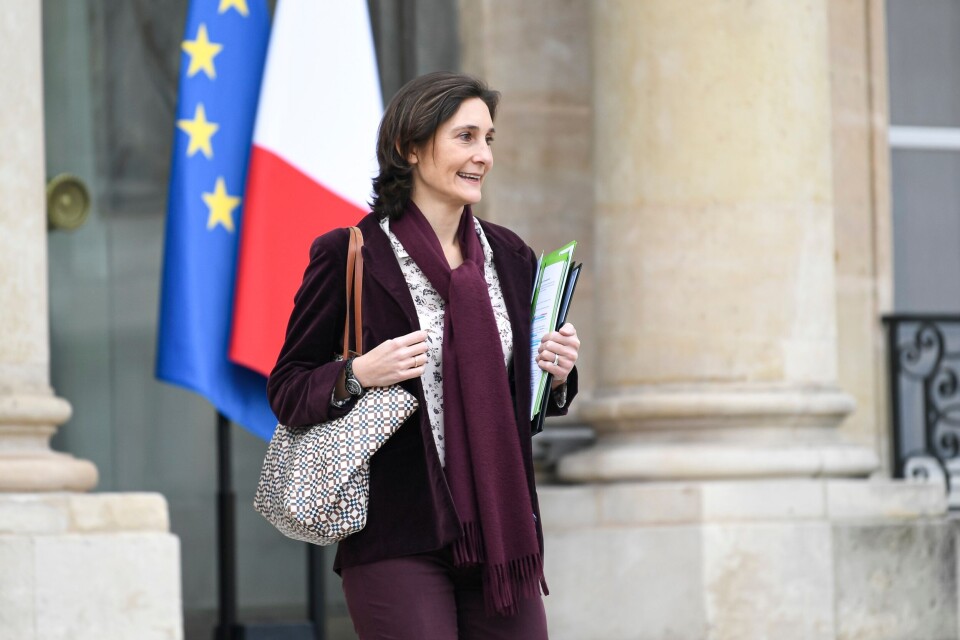-
Ski helmets should be compulsory in France
Two readers share their views on risk and danger on the slopes
-
We went to a French curry house but it didn't hit the spot
Columnist Samantha David laments the lack of decent meals in the style of the subcontinent
-
From 'romantic Paris' to dating apps: love is changing in France
Researcher Aziliz Kondracki explains the role that romance plays in modern France
French education minister did not lie - ‘reality proved her wrong’
Statement over her son’s schooling echoes the ‘alternative facts’ phrase from the US Trump administration

France’s newly-appointed Education Minister Amélie Oudéa-Castéra is facing backlash over her use of obtuse language, after her statement about why she moved her son from state to private school was contradicted by the boy’s former teacher.
Ms Oudéa-Castéra said that she moved her then-four-year-old son from state school to private school because of staff shortages and insufficient cover.
However, a teacher at the state school denied this, prompting Ms Oudéa-Castéra to say that the facts “have proved me wrong” in her defence. The line has been compared to the infamous “alternative facts” phrase used by the US Trump administration.
The minister has been unable to shake-off the controversy in recent days, despite several communication attempts - including a visit to the state school in question.
What is the controversy?
Ms Oudéa-Castéra said she moved her son because staff shortages were impacting his education.
However, his former teacher denied this in an interview with Libération, which instead suggested that Ms Oudéa-Castéra and her husband changed the school because the establishment had refused to move the boy up a year.
The Syndicat national des agents publics de l'Education nationale, the union representing state school teachers, has since filed a defamation suit against Ms Oudéa-Castéra.
The controversy has reopened debate about private schools in France and class inequality in general.
Was it a lie?
Ms Oudéa-Castéra says her initial claims were made in good faith.
“I have built my argument - with the utmost sincerity - on the recollection and perception of a mother’s experience 15 years ago,” she explained on Télématin, one of France 2’s morning shows.
“Now, the statistics brought forward by the local education authority and the testimony of a teacher prove me wrong. Duly noted,” she added.
She was responding to a question by the show’s host, Thomas Sotto, who explicitly asked: “Did you lie? Did you make up problems that did not exist in this school?”
A clip of the interview can be viewed below.
Is this another case of ‘alternative facts’?
Ms Oudéa-Castéra’s response is the latest example of some politicians’ increasingly creative attempts to side-step blame for making inaccurate claims.
In 2017, the phrase ‘alternative facts’ was used by the US Counselor to the President Kellyanne Conway to defend then-White House Press Secretary Sean Spicer's false statement about attendance numbers at Donald Trump's inauguration.
'Les faits' or 'la réalité me donnent tort' is the closest French equivalent of the phrase, which was sharply criticised by the media at the time.
Ms Oudéa-Castéra has tried to distance herself from such a parallel, accepting that the information brought forward has “proved her wrong,” without disputing its validity.
Why does it matter?
Many wealthier families in France send their children to private schools, as they are often seen as superior with better teachers and greater resources.
The trend has accelerated over the years after state schools in France slid down international rankings.
Read more: French schools falling further behind, shows major new study
Some critics claim that Ms Oudéa-Castéra’s wealthy background is emblematic of a political class that remains disconnected from the realities of most people in the country.
She graduated from the elite Sciences Po and l’ENA schools - having been enrolled at the same time as President Emmanuel Macron - and is married to Frédéric Oudéa, CEO of the pharmaceutical giant Sanofi and formerly of Société Générale.
News outlet Mediapart published an investigation this week into Collège Stanislas - the private Catholic school in Paris at which all three of the couple’s sons have been enrolled - revealing an atmosphere of sexism and homophobia.
The school is ‘sous contrat’, meaning that much of the curriculum is state-funded but fees are used to fund extras, such as religious education.
The schooling background of newly appointed education ministers is often scrutinised by journalists looking for controversy, particularly as many studied at private institutions.
Prime Minister Gabriel Attal suffered the same fate five months ago when he was appointed education minister, with several newspapers making much of the fact that he attended the elite École alsacienne, a private school in Paris.
Related articles
Five ‘grandes écoles’ and why they are considered important in France
France to launch large-scale trial of school uniforms
Change to France’s school holiday zone system under review
























